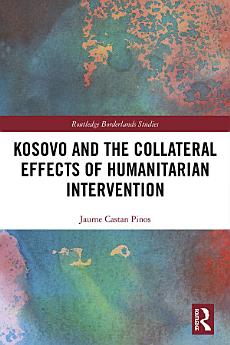Kosovo and the Collateral Effects of Humanitarian Intervention
About this ebook
Two decades after NATO’s intervention and a decade after unilaterally declaring independence, Kosovo continues to be confronted with daunting existential challenges that inevitably affect the stability of the region, border relations, and the credibility of the organisations operating within Kosovo, namely the UN, the EU and NATO. The book claims that not only is the political and territorial conflict far from being settled, but that the implications have gone beyond Kosovo, creating shock waves which have galvanised conflicts elsewhere. In effect, Kosovo has been used as a pretext, as a legitimation and as an inspiration for those who aspire to challenge the border status quo.
The book is primarily aimed at undergraduate and postgraduate students of International Relations and Political Science and as well as Border Studies scholars, but will also appeal to researchers focusing on state-building, peace-building, humanitarian studies, nationalism/secessionism and Balkan studies.
About the author
Jaume Castan Pinos works as an Associate Professor at the Department of Political Science and Public Management, University of Southern Denmark. He holds a Ph.D. in International Politics (Queen's University Belfast, 2011). He is the Director of the European Studies Bachelor programme at the University of Southern Denmark. His academic interests are framed by ethno-territorial conflicts, sovereignty and political violence. He has conducted extensive research in Catalonia, North Africa and former Yugoslavia.





